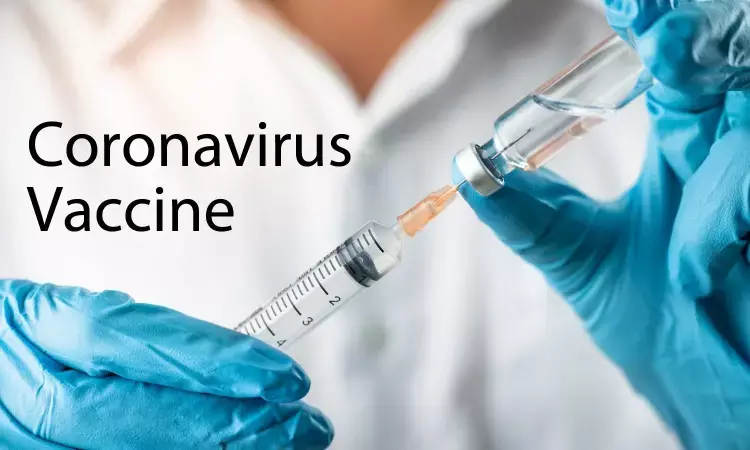- Home
- Medical news & Guidelines
- Anesthesiology
- Cardiology and CTVS
- Critical Care
- Dentistry
- Dermatology
- Diabetes and Endocrinology
- ENT
- Gastroenterology
- Medicine
- Nephrology
- Neurology
- Obstretics-Gynaecology
- Oncology
- Ophthalmology
- Orthopaedics
- Pediatrics-Neonatology
- Psychiatry
- Pulmonology
- Radiology
- Surgery
- Urology
- Laboratory Medicine
- Diet
- Nursing
- Paramedical
- Physiotherapy
- Health news
- Fact Check
- Bone Health Fact Check
- Brain Health Fact Check
- Cancer Related Fact Check
- Child Care Fact Check
- Dental and oral health fact check
- Diabetes and metabolic health fact check
- Diet and Nutrition Fact Check
- Eye and ENT Care Fact Check
- Fitness fact check
- Gut health fact check
- Heart health fact check
- Kidney health fact check
- Medical education fact check
- Men's health fact check
- Respiratory fact check
- Skin and hair care fact check
- Vaccine and Immunization fact check
- Women's health fact check
- AYUSH
- State News
- Andaman and Nicobar Islands
- Andhra Pradesh
- Arunachal Pradesh
- Assam
- Bihar
- Chandigarh
- Chattisgarh
- Dadra and Nagar Haveli
- Daman and Diu
- Delhi
- Goa
- Gujarat
- Haryana
- Himachal Pradesh
- Jammu & Kashmir
- Jharkhand
- Karnataka
- Kerala
- Ladakh
- Lakshadweep
- Madhya Pradesh
- Maharashtra
- Manipur
- Meghalaya
- Mizoram
- Nagaland
- Odisha
- Puducherry
- Punjab
- Rajasthan
- Sikkim
- Tamil Nadu
- Telangana
- Tripura
- Uttar Pradesh
- Uttrakhand
- West Bengal
- Medical Education
- Industry
Pfizer-BioNTech COVID vaccine trial remains on track, says CEO

New Delhi: Side effects that have emerged in a large late-stage trial of a Covid-19 vaccine candidate from Pfizer Inc. and BioNTech SE are in line with those seen in smaller early studies, a positive sign for one of the front-runners in the race for a shot.
The partners haven't had to stop their late-stage study over safety concerns, BioNTech Chief Executive Officer Ugur Sahin said in an interview. They're sticking with their previously announced target of being able to provide preliminary data on whether the vaccine works as soon as this month, if a threshold for infections is reached; if so, any submissions for regulatory approval would come later.
That would put Pfizer and BioNTech on track to potentially be the first to show the efficacy of a Covid-19 vaccine, in an environment of intense scrutiny over every possible complication. This week, Eli Lilly & Co. and Johnson & Johnson both said they had to pause research on potential therapies or shots because of safety concerns. Meanwhile, U.S. President Donald Trump has touted unproven treatments and pushed for more rapid regulatory review.
The pauses in other studies show "there is no room for ignoring facts," Sahin said. "If there is a concern, the process stops. No one closes their eyes, and it should give people confidence that if a vaccine survives the development process and is approved, it should be regarded as safe."
Pfizer and BioNTech chose their candidate from a slate of four contenders, all of which relied on messenger RNA technology designed to teach the body's cells to become vaccine factories in their own right.
In what Sahin said is an unusual step, Pfizer and BioNTech published some of the data they used to narrow the field in the New England Journal of Medicine on Wednesday. The results show that people who took the experimental shot they chose had fewer so-called systemic side effects -- things like fever, chills and fatigue -- than those who got another jab in the partners' portfolio.
Because of the structure of the trial, BioNTech and Pfizer had first disclosed early results for another vaccine candidate, BNT162b1, in July. Investors were already optimistic about prospects for it, but after comparing data the companies decided instead to pursue another candidate, BNT162b2, Sahin said. That one performed as well in elderly people in the study as it did in young participants, he said, an important consideration for a coronavirus vaccine.
Similar Effects
With just 195 participants, the early study was too small to show the real safety implications of the experimental shot. Still, the side effects that have emerged so far in the 44,000-person late-stage trial are similar to those seen in these early studies, Sahin said.
Safety is a key factor for any potential vaccine because the shots will be given widely to healthy people. The Food and Drug Administration has said it will require two months of safety data before reviewing any application for emergency authorization for a vaccine.
Collecting the extra safety data probably won't cause much of a delay once readout on the vaccine's effectiveness is available, Sahin said.
"Waiting another couple of weeks to complete the safety data should not be a concern," he said.
Ruchika Sharma joined Medical Dialogue as an Correspondent for the Business Section in 2019. She covers all the updates in the Pharmaceutical field, Policy, Insurance, Business Healthcare, Medical News, Health News, Pharma News, Healthcare and Investment. She has completed her B.Com from Delhi University and then pursued postgraduation in M.Com. She can be contacted at editorial@medicaldialogues.in Contact no. 011-43720751


